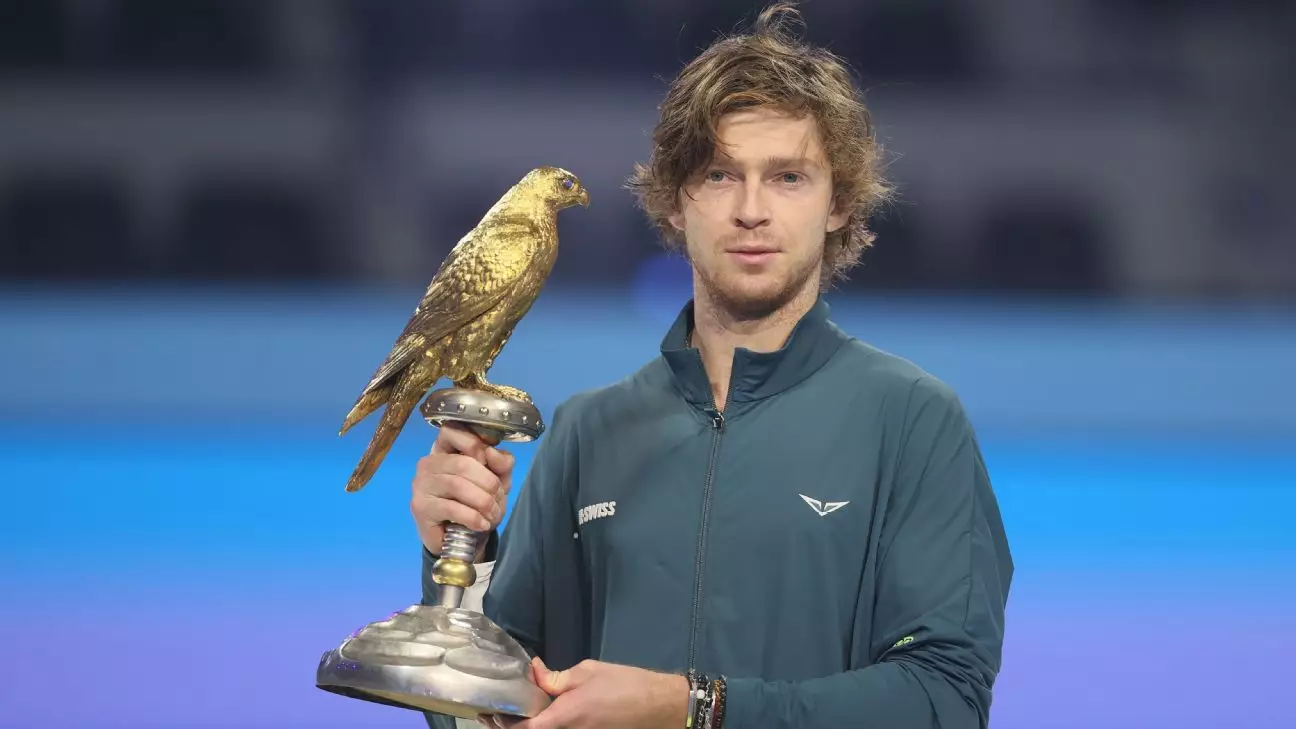In a gripping final at the Qatar Open, Russian tennis sensation Andrey Rublev once again showcased his prowess on the court by defeating Jack Draper with a final score of 7-5, 5-7, 6-1. This victory marked Rublev’s second title at this event, affirming his status among elite players. His performance, particularly under pressure, highlights not only his physical capabilities but also his mental fortitude—a factor he emphasized in his post-match reflections.
Rublev’s comments after the match reveal a deep understanding of the psychological aspects of competitive sports. “I was really good mentally and didn’t let frustration overcome me,” he stated. This assertion is pivotal to understanding his victory. Even as he grappled with the ups and downs of the match—specifically dropping the second set—he managed to maintain his focus and drive. Such resilience under duress is crucial; athletes often falter when faced with frustrations, but Rublev’s ability to “restart” his game signifies a mature approach to pressure management.
Furthermore, the nature of his consecutive matches further illustrates this mental strength. Winning three straight three-set matches within such a condensed timeframe is no small feat. It speaks volumes about Rublev’s conditioning and his psychological preparedness to rebound from setbacks promptly.
The title in Doha represents Rublev’s 17th career trophy and holds a special place in his heart as it marks the first tournament he has won twice. This achievement, particularly after overcoming tough adversaries like Alex de Minaur and Felix Auger-Aliassime earlier in the tournament, underscores the sheer determination that defines Rublev’s playing style. More than just a number, the title signifies a milestone in a journey filled with hard work and perseverance.
In recognizing his opponent, Draper, Rublev noted, “We were exhausted and it was difficult.” This acknowledgment of shared struggle reflects sportsmanship and mutual respect that often gets overshadowed in competitive environments. For Draper, despite the loss, he is set to achieve a career-high ranking of No. 12, a testament to his growth in the sport.
Both players leave the tournament with lessons learned and renewed determination. For Rublev, the victory reinforces his belief in managing mental challenges on the court, a vital skill for upcoming tournaments. Conversely, Draper’s performance sets a high standard for his future endeavors.
As the tennis season progresses, the narratives of resilience and growth serve as pivotal learning points. The Qatar Open has not only crowned a champion but has also highlighted the importance of mental strength in achieving success in sports, a reminder for athletes in all areas of competition. The journey continues, and with both Rublev and Draper showcasing their talents, the attention of tennis fans worldwide is undoubtedly captured.


Leave a Reply